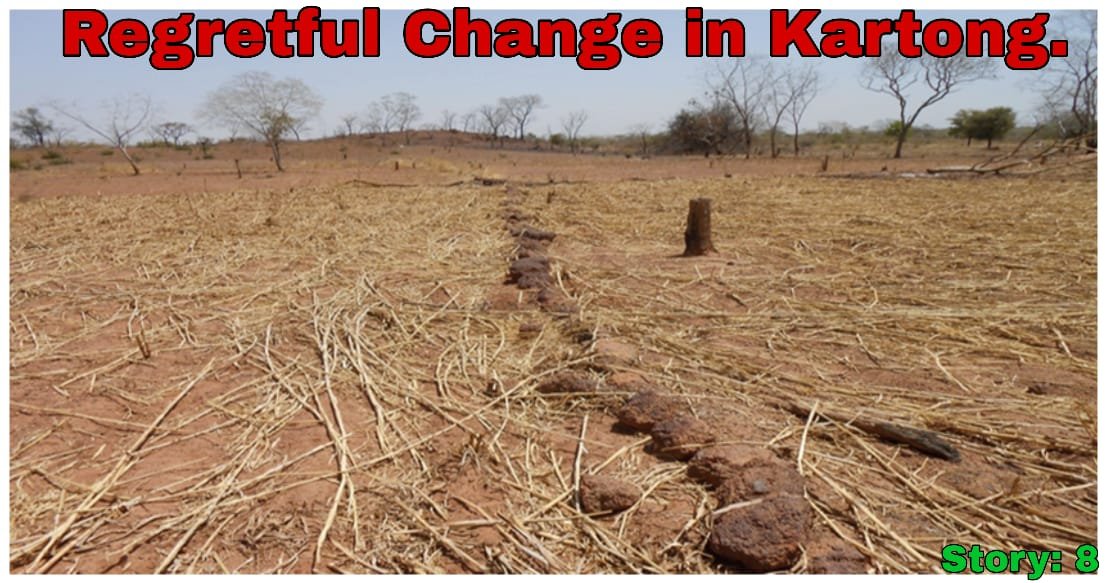Regretful Change in Kartong: An Environmental Story
𝑩𝒚: 𝑺𝒖𝒍𝒂𝒚𝒎𝒂𝒏 𝑵𝒋𝒊𝒆 (𝑺𝒐𝒍 𝑺𝒍𝒊𝒎)
In the lovely coastal village of Kartong, surrounded by the vast sea and lush forests, people lived in harmony with nature. The village was full of life, and its residents, including Bunama, Kebba, Laity, Elas, Efo, Salimata, and Nyima, found richness not in money but in their close connection with the land and sea. They were careful stewards of their environment, preserving the mangroves and living sustainably, following the wisdom of their ancestors.
Then, one day, a large company arrived, offering promises of jobs, new roads, and a brighter future. At first, the villagers were unsure. Bunama, a wise elder, would remind everyone, “A nation that destroys its soils destroys itself. Our forests and seas are like the lungs of our land, keeping us strong and healthy.”
But the offer of money was tempting. The villagers began to dream of an easier life with the company’s promises. Slowly, they accepted the changes, thinking it would bring immediate improvement. The funds allowed them to improve their homes and explore opportunities they had never considered before.
The changes started quietly. Big machines moved in, cutting down trees and clearing the mangroves. The ecosystem, once balanced, was disturbed. The clear waters turned brown, and the noise of machines filled the air. The community was initially excited, but soon they faced challenges they hadn’t expected. The agriculture they relied on no longer thrived, and the village was plagued by both noise and air pollution. Each year, windstorms and floods severely damaged their homes. The jobs that were supposed to come did not appear as they had imagined, and although the pay from the company helped, it could not replace the natural abundance Kartong once provided freely.
As Kartong was on the coast, the loss of mangroves disrupted the breeding grounds for fish and oysters. For women like Efo and Salimata, gathering oysters became difficult, and fishermen like Elas found fewer fish in their nets. They were left in shock and despair.
Over time, the true impact of their decisions became clear. Kartong, once a thriving green haven, turned into a barren place. The harvests became poor, the air was polluted, and the health of the community suffered. The warnings of Kebba and other concerned villagers echoed in their minds: “The greatest threat to our planet is the belief that someone else will save it.”
In a final gathering under the stars, the people of Kartong came together to face the truth. Bunama spoke with sadness but also a renewed sense of hope, urging everyone to become protectors of their home once more.
Kartong’s story holds important lessons:
Short-Term Gains vs. Long-Term Sustainability: Real wealth is not immediate; it comes from safeguarding resources for future generations.
Courage to Stand by Values: It's essential to maintain one’s values, even when others do not. Bunama, Nyima, and others demonstrated bravery and wisdom.
Shared Responsibility for the Environment: Everyone has a role in caring for the planet. Relying on others to solve problems can lead to irreversible harm.
Determined to make things right, the villagers of Kartong vowed to restore their land. Although it would take years to heal and rebuild their village—and it was uncertain if it could ever return to its former beauty—they were committed to trying. They learnt from their mistakes, hoping to build a better future for themselves and generations to come.

